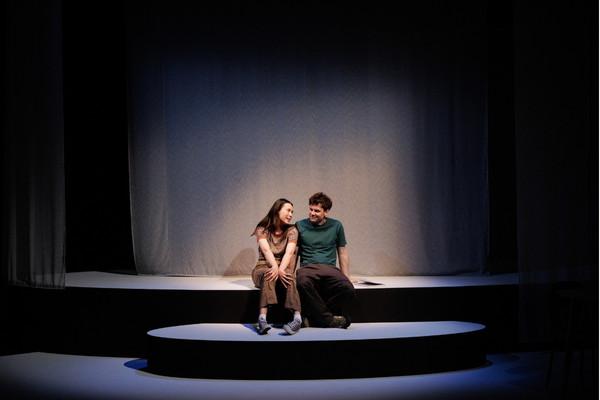Theatre Republic’s present a masterful production of Australian playwright Kendall Feaver’s internationally award-winning play ‘The Almighty Sometimes’.
It’s about a young adult, Anna, who was diagnosed with a psychosocial disability when she was seven, following the death of her father, and her mother’s decade long search for answers regarding how best to keep her child safe.
‘The Almighty Sometimes’, a play which won the Bruntwood Prize for Playwriting in 2015, takes its name from mental health diagnostic tests: the ones with long lists of symptoms that patients (or their parents or guardians) need to circle, then give to psychologists or psychiatrists: do they feel this way never, sometimes, or often? Anna’s mother Renee (Tamara Lee) filled one of these out for Vivienne (Anna Steen) when she read the notebook of florid stories depicting gruesome deaths written by seven-year-old Anna (Emily Liu). As Vivienne says, there are no MRIs or definitive tests which can identify a singular cause of mental health symptoms. The play explores the complexities that emerge from this ambiguity: the blurred boundaries between identity and illness, genius and psychosis, treatment and harm, sometimes and often.
The play begins with questions, and it ends with them. There are no resolutions. The human brain and the mental health crisis facing our society, particularly our young people, is too wicked a problem to resolve in a few hours of fiction. Each character, Anna, Renee, Vivienne, and Anna’s boyfriend Oliver (Simon Chandler) offers a different perspective. Anna is concerned by the side-effects of her prescription medications – she can’t write like she once did – she wonders if childhood grief might have explained her preoccupation with death. Vivienne sees symptoms through a biomedical lens: it’s dopamine receptors and neural pathways. Oliver has been a carer for his father, who has a physical disability, for much of his life, which has forged compassion, but he’s also, like Renee, fatigued by caring and plagued by the absence of answers. No character’s perspective is deemed right.

Image © Bri Hammond
Production designer Meg Wilson’s set is simple and effective: beige fabric, steps and flooring. Beige like a psych ward, like an anti-psychotic pill, like, as Anna says, the universe. In bursts of sound, composed by Jason Sweeney, as lights designed by Nic Mollison go out, director Corey McMahon efficiently adapts the Space Theatre set between scenes. The creative team provide the canvas for a quartet of remarkable performances that require the rapid cycling between emotions. Emily Liu, as Anna, is required to show the greatest range, as she alternates between medicated numbness, manic episodes of word explosions, and blank-faced muteness. Emily, Simon and Tamara all successfully inject humour into a work that needs these moments of respite, while Anna Steen is forced to remain clinically neutral in circumstances which make doing so immensely difficult.
While the science and medical best practice regarding mental health and psychosocial disability is consistently evolving, ‘The Almighty Sometimes’ is an important insight into a world that is sadly far too common yet remains too often hidden behind closed doors.
Anyone in Australia can speak to a trained Crisis Supporter over the phone, any time of the day or night. CALL 13 11 14. Call available 24/7.


